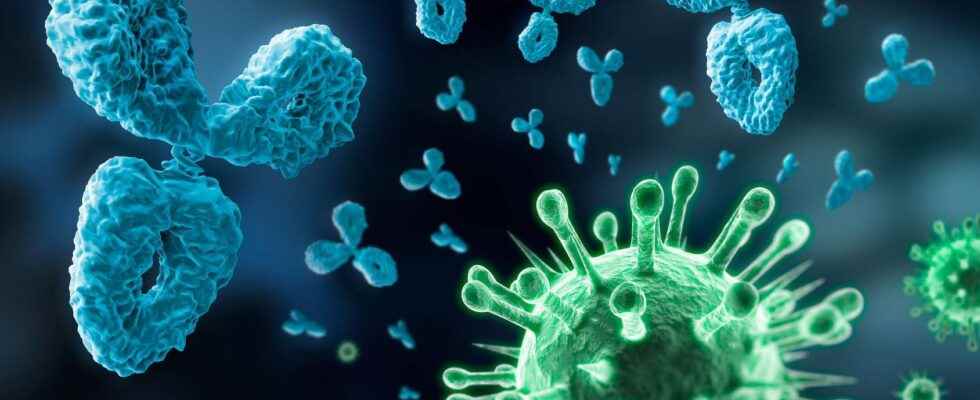We had already spoken of llama antibodies, an original lead to neutralize SARS-CoV-2. Today, it is the immune system of another animal that is at the heart of the work of scientists at the University of Wisconsin-Madison in the United States.
You will also be interested
[EN VIDÉO] What are the existing treatments for Covid? More than 4,500 studies are currently underway for anti-Covid treatments. No wonder drug has yet been found, but there are some promising leads. © Futura
the immune system sharks are home to the most small antibodies among all vertebrates. They are a tenth the size of a human antibody. VNARs, for Variable New Antigen Receptors, are studied by scientists at the University of Wisconsin-Madison for their action against coronavirus. Within a bank of millions of VNARs, managed by the company Elasmogen, three candidates that prevent SARS-CoV-2 and SARS-CoV-1 from infecting cells in vitro.
Shark antibodies against coronaviruses
By their size, VNARs target other areas of the coronavirus, inaccessible to antibody more voluminous. One of them, called 3B4 binds to a groove in the S protein, the latter is genetically conserved between coronaviruses. 3B4 can thus neutralize SARS-CoV, but also the MERS-CoV, their distant cousin. The 3B4 binding site is also the same in the Delta variant, Beta and Alpha, making it theoretically effective against the latter as well.
The second 2Co2 VNARs also looks promising. Its mode of action differs from that of 3B4. 2Co2 blocks protein S in its “inactive” form in which it is unable to bind to ACE2. Some SARS-CoV-2 variants carry mutations at the 2Co2 binding site, reducing its neutralizing power.
Treatments based onantibody sharks will not be available immediately. Scientists believe that in cocktails, administered in addition to other approaches, VNARS may be of interest in neutralizing the coronavirus and its future variants.
Interested in what you just read?
.
fs6
